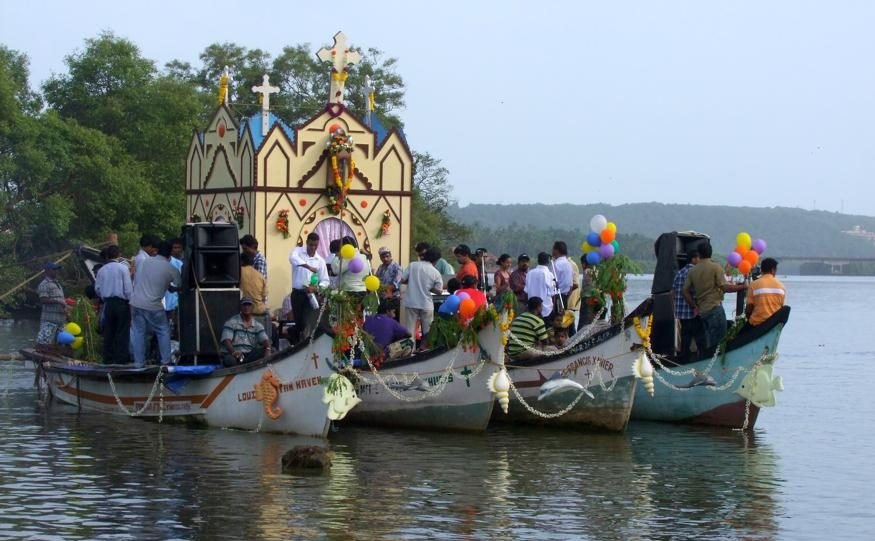Peter and Paul were the two patron saints of Rome and were regarded as cornerstones of the Church

The Church celebrates the liturgical feast on June 29 to honour the martyrdom of the apostles Sts Peter and Paul in Rome around 64 AD. Peter and Paul were the two patron saints of Rome and were regarded as cornerstones of the Church. Cephas, from which the name Peter came, which means rock, was one of the first Apostles among the 12, who was born in the fishing village of Bethsaida in the province of Galilee. The Roman Catholic Church considers Peter, also known as Simon Peter, Simeon or Simōn, to be the first Pope, ordained by Jesus in the 'Rock of My Church' dialogue (Matt. 16:18). Peter is regarded as a great saint by the early Christian churches, who credit him with founding the Church of Antioch and subsequently the Church in Rome.
Originally a fisherman, Peter played a lead role (as a spokesman of the 12 apostles) and was with Jesus during events such as the Transfiguration. According to the gospels, Peter who confessed Jesus as the Messiah, was part of Jesus’ inner circle, thrice denied Jesus, and preached on the day of Pentecost. Peter was persecuted by Emperor Nero Augustus Caesar, and ordered to be put to death. At Peter’s request, he was crucified upside down as he did not consider himself worthy to die in the same way as Jesus. The Roman Emperor Constantine built a church in the saint’s honour above his grave, which is now known as St Peter’s Basilica in the Vatican City.
The account of Jesus walking on water is included in three of the four gospels: Matthew, Mark, and John. Additionally, Matthew portrays Peter walking on the sea for a moment before he starts to sink as his faith wanes. When Jesus began washing his disciples' feet at the Last Supper, Peter initially objected, but when Jesus said, "If I wash thee not, thou hast no part with me," Peter said, "Lord, not only my feet, but also my hands and my head."
Paul, whose Jewish name was "Saul," was a Pharisee and a member of the Tribe of Benjamin who took part in the persecution of the early followers of Jesus in the Jerusalem region, and is an important figure of the Church. Paul was on his way to Damascus so that he might bring charges against them. At noon, a light that was brighter than the sun flashed around him and all who were with him, forcing everyone to fall to the ground, and the risen Christ spoke to Paul about his tribulation. Three days after being stricken blind and receiving the order to go to the city where Ananias of Damascus restored his sight. Following these incidents, Paul received baptism and started announcing right away that Jesus of Nazareth was the Jewish Messiah and the Son of God.
As described in the book of Acts, Paul conducted three missionary journeys to share the gospel with non-Jewish people in Asia Minor, Greece, Macedonia, Cyprus, Judea, and Syria. He wrote a large portion of the New Testament. Despite never having seen Jesus, he is regarded as the most influential apostle who spread Jesus' teachings to early Christians. Epistles of Paul and over half of Acts of the Apostles, out of the 27 volumes that make up the New Testament, are devoted to Paul's life and accomplishments. Thus, about half of the New Testament stems from Paul and the people whom he influenced.
Marking the beginning of Ramponn season in Goa
The feast, which historically marks the beginning of the 'ramponn' fishing season, is observed by fishermen across Goa. On this day, fishermen pay tribute to their deceased colleagues and pray and sing litanies to the Almighty. Historically, it was celebrated as the "Sangodd" festival in the communities of Sinquerim and Candolim. The fishermen make a Sangodd by entwining their fishing canoes to create a stage, which symbolises the contribution of Sts Peter and Paul towards the building of the Catholic Church. A miniature replica of a chapel and a church is also set up in the background. After the morning feast Mass, the Sangodd festival starts at three o'clock. The Sangodd sails along the river while providing live performances of traditional dances, Konkani songs, and music for the enjoyment of the crowd gathered along the riverbank. Sangodd celebrations have been a tradition in Orda-Candolim for more than 150 years.
The feast of St Peter has been observed in Ribandar for more than a century. The procession of the parish priest of Ajuda Church carrying the statue of St Peter onto the Sangodd in the Mandovi River with the brass band signals the start of the festivities. From the Ribandar ferry point, the Sangodd sails on river Mandovi to the Goa Institute of Management. From there, it turns and travels back to St Peter's Chapel, between Solar dos Colaço and Camelot. The fishermen plunge their nets into the river and pray for safety and a big catch for the season as the priest blesses it with holy water. This is followed by the Eucharistic Mass at the church. The feast is observed in many villages including Caranzalem, Sao Pedro, and Bainguinnim. In South Goa, the feast is celebrated at Assolna and Ambelim where the Sangodd sails on the River Sal. The river and fishing nets are blessed by the priest.